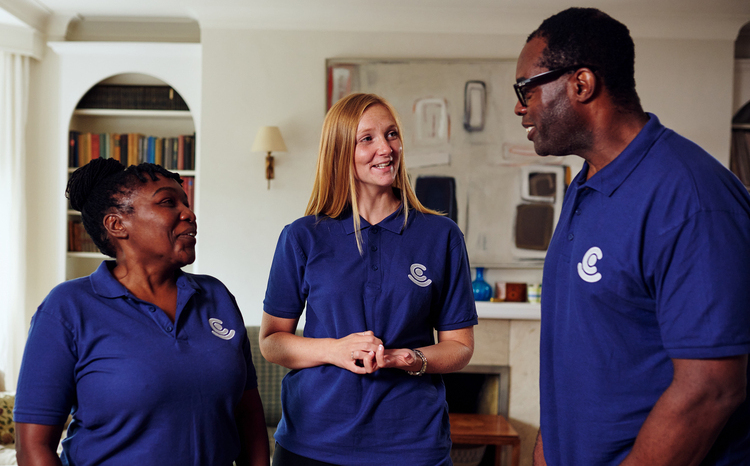Error means 48,000 women have not received cervical cancer screening information
- 16 November 2018

Capita has apologised after it was revealed more than 48,000 women may not have received information about their cervical cancer screening following an administrative error.
The professional services firm is responsible for distributing invitation and reminder letters about smear tests.
But it has confirmed that between January and June this year, approximately 43,200 women due to receive letters were sent an invitation letter or a reminder, but not both.
And 4,508 letters detailing the results of smear tests were also delayed, with Capita admitting a “small proportion” of these related to a need for further examination.
In a statement, the company said: “The risk to women of this incident is low and there is no current evidence of harm, but Capita nevertheless apologises to both the NHS and to the women whose correspondence was delayed.
“We have investigated the precise circumstances around this incident, and it is clear that the correct process for uploading, organising and checking datafiles was not properly followed.
“When the problem was discovered, it was not immediately escalated to senior leadership, or NHS England, by the individuals responsible.
“Capita is investigating the managerial handling of the matter and taking appropriate disciplinary action. Additionally, a senior executive responsible for this contract has already left Capita.”
The company also added it had appointed an independent audit team, led by PwC, to carry out a detailed review into operational systems and processes.
NHS England confirmed in a statement to Digital Health News that it had been alerted to the situation by Capita.
A spokesperson said: “Capita has alerted NHS England to an administrative failure in its processing of cervical screening, which means some women have not received invitation, reminder and result letters when they should have.
“Every woman’s case is being reviewed, but there is no current evidence that this incident has led to harm to the women involved, and our priority now is to ensure that anyone affected by this incident is contacted, and knows how to get checked if they are due a cervical screen.”
The body also announced on 15 November that it would be conducting a major overhaul of national cancer screening programmes.
The review, which is expected to report by summer 2019, will assess the strengths and weakness of the current cancer screening programmes and make recommendations on a number of areas.
This includes introducing new screening technologies and updating IT systems.
The NHS’ first cancer director and former CQC chief inspector, Mike Richards, will lead the the review which will explore how latest innovations can be utilised, including the potential use of artificial intelligence.
The British Medical Association (BMA) also announced that it had written to NHS England’s chief executive, Simon Stevens expressing concerns after learning what had happened.
Richard Vautrey, BMA GP committee chair, added it was an “incredibly serious situation”.
Earlier this year, the public accounts commitee heavily criticised NHS England for “wasting nearly two and a half million pounds” trying to resolve a separate issue with clinical correspondence which involved a Capita contract.





4 Comments
I have noticed that of all types of insurance, health care insurance is the most questionable because of the discord between the insurance plan company’s need to remain profitable and the user’s need to have insurance cover. Insurance companies’ profits on wellbeing plans are incredibly low, so some companies struggle to generate income. Thanks for the suggestions you reveal through your blog.
The benefits of privatisation of the NHS? Who benefits from this? Clearly not the patients!
The PCS service was outsourced to Capita back in 2015. At the time NHS E claimed it was the only way to make the service more efficient and reduce the costs. Within a year the service was on its knees and NHS E people had to be parachuted in to get it back on its feet.
It has staggered along ever since with Capita leads coming and going at regular intervals, always departing with the same glib spiel: ‘I’ve loved every minute with PCSE, and made a real contribution. Now everything is running fine, it’s time for me to move on to my next challenge….’.
lol In any fair world it would have been Capita’s equivalent of the Eastern Front – except I guess now PCSE probably is Capita’s equivalent of the Eastern Front.
I’d love to see a genuine analysis of whether this deal has saved any money for the NHS because it clearly hasn’t delivered any other benefits, and more than a little harm.
I don’t know nothing about that
Comments are closed.